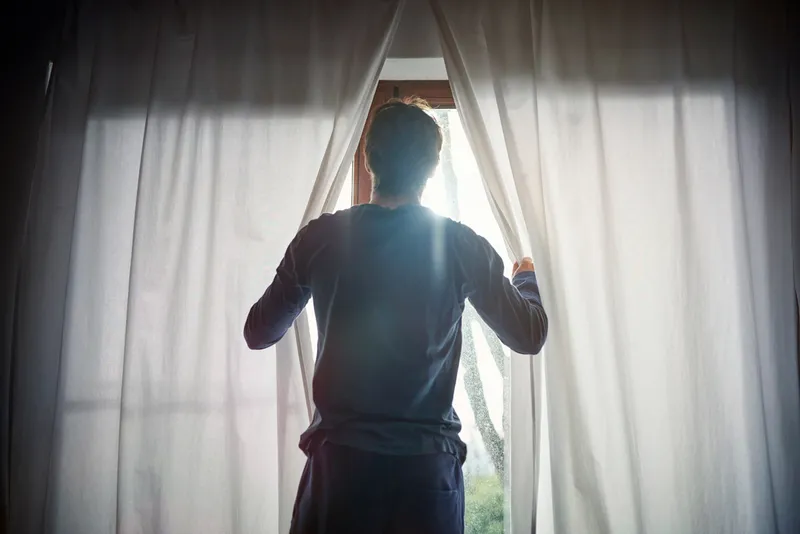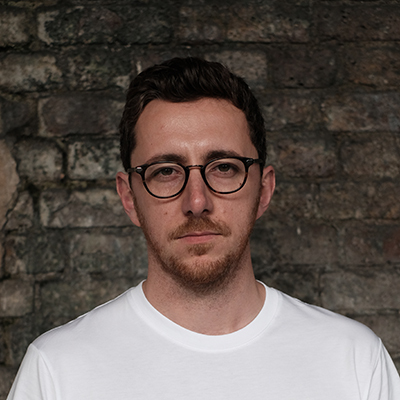Anyone who’s not a morning person is reminded, frequently, that they’re not a morning person. For me, it’s being used as a barely sentient climbing frame when my children charge in at dawn. It’s the brain fog that takes a couple of hours to shake off at the start of each day. It’s the mild despair at seeing messages from colleagues who are already being productive, while I’m still summoning up the coordination required to pour out some breakfast cereal.
If you’re a night owl rather than an early-bird lark, the world is not organised in your favour. For most of us, work or school starts between 8-9am. If you’re a shift worker or a parent to young children, then your day likely starts even earlier.
But for around 30 per cent of the population (me included) this runs counter to our biology. We’re slow to rise and slow to feel wakeful or energetic. In some cases (naming no names), we might be a little grumpy and monosyllabic, too.
And that’s because of our chronotypes, the body’s natural tendency to sleep and wake at certain times. Linked to our circadian rhythms – the internal clock that regulates a person’s sleep-wake cycle – chronotypes describe our sleep patterns, and the tempo of behaviours and characteristics that go with them.
Most of us think there are two chronotypes: night owls, like me, who feel productive, creative or just wide awake later in the evening; and morning larks, who can spring out of bed and jump straight into their running gear or a busy inbox.
In truth, chronotypes exist not as a binary but on more of a spectrum, and there are intermediary types that have some of the characteristics of both owls and larks. Even within a given chronotype, there’s a certain amount of elasticity. It’s why morning people can stay up late and evening types can, when pushed, catch early-morning flights.
“Your internal clock doesn’t run at exactly 24 hours,” says Dr Victoria Revell, a sleep researcher and expert in circadian physiology at the University of Surrey. “For most people, it runs slightly longer than 24 hours. So it needs daily adjustment to keep on a 24-hour schedule.”
That flexibility opens up an intriguing opportunity for a night owl like me: is it possible to coax my body clock into a slightly earlier rhythm? In a world where sleep can be hacked, tracked and optimised, can I turn myself into a lark – or at least a better owl?
“The main thing with chronotypes is that, yes, there’s a genetic predisposition, but they’re not set in stone,” says Edward Gorst, a London-based sleep coach. “There’s a couple of hours’ wiggle room.”
With the help of researchers, sleep coaches and an alarm set to loud, I’m going to give it a go. But first, I need to understand the science…
How being a night owl can impact your health
It’s not just social jet lag that makes life tough for night owls. Studies show they’re also at an increased risk of a number of health issues, including…
Diabetes and heart disease
This is partly because early birds tend to use their fat stores as a source of energy, say researchers at Rutgers University.
Depression
Multiple studies show that night owls are more prone to depression, but one from Harvard Medical School suggests that going to bed and getting up one hour earlier can reduce the risk by 23 per cent.
Breast cancer
University of Bristol researchers found that women who rise early have as much as 48 per cent lower risk of developing breast cancer than night owls (although chronotypes may be less important than factors like smoking or diet).
How your chronotype changes your body
Why are some people programmed to get up earlier than others? There is no one clear answer to this question; instead, the explanation is a fuzzy mix of genetics, evolutionary adaptations and our environments and behaviours.
The genetic component is down to a gene called PER3, which regulates certain elements of our circadian rhythms. And the reason we have different expressions of PER3 could be linked to our ancestors’ survival instincts.
In 2017, a group of researchers suggested that different chronotypes may have evolved in groups of hunter-gatherers, so that there could always be somebody to keep watch while others slept. (Unfortunately, modern office managers fail to recognise the same benefits.)
Physically, the tempo of our circadian rhythms is set in a small region of the brain called the suprachiasmatic nucleus or SCN, explains Prof Malcolm von Schantz, a sleep researcher at Northumbria University.
“It’s this small lump of neurons located deep in the brain, in the hypothalamus, that’s a sort of circadian control station,” he says.
“The SCN essentially coordinates circadian rhythms in humans and other mammals. It’s sort of the master clock, which controls all the peripheral clocks that we have in our organs.”
Neurological control units and genetic predisposition make it sound as though our chronotypes are biologically hardwired. So, is it unrealistic to even try and override them to become a morning person? Not necessarily.

We know chronotypes can change, because they do change, naturally – usually with age. “We see a trajectory of chronotype across our lifespan so that in our teens we become increasingly evening types,” von Schatz says, explaining why teenagers often find it hard to get out of bed in the morning.
“At the end of adolescence, probably around age 18-20, that’s where we have a sort of lifetime maximum of ‘eveningness’. After that, there’s a gentle and continuous, pretty much linear slope, towards increased ‘morningness’.”
It doesn’t always feel like it, but this means I’m already becoming more of a morning person. In my early 40s, I’m approaching what might be the middle of that gentle slope. But if I want to speed up the process, I’ll have to somehow tinker with my internal body clock. And, according to the science, the best way to do that is to see the light.
Read more:
- Tired all the time? Here’s how to kick sleep deprivation for good
- How hidden 'overtiredness' is ruining your sleep – and how to fix it
- Why do I always get an energy crash in the afternoon?
How to hack your body clock and become a morning person
Use light at the right times
There’s a reason sleep researchers caution against bringing your smartphone into the bedroom. “Light is by far the most important way in which our circadian rhythms are adjusted,” says von Schantz.
And not just any light, but blue light – the stuff we get from natural daylight and the same stuff that’s beamed into our retinas from the devices we gaze at all day long.
“We know that if you have light in the evening, it actually shifts your clock later in time,” says Revell.
“People who are sitting in front of their blue [light] screens or sitting with all the lights on late in the evening, not only are they waking themselves up, they’re actually delaying their clock, so it’s harder to fall asleep. They’re tired, but because they’ve had that light, they’ve shifted their clock later in time, almost as if they’d flown two hours west.”
It goes back to the SCN, that circadian control centre in your hypothalamus. According to von Schantz, the SCN only responds to information from the retina during two fairly narrow time windows: one window is around 7am and the other is around 11pm.
“Those time windows are crucial, for evening types in particular,” he says. “You really need that light in the morning because you need to work harder on the daily task of advancing your body clock.”
It’s one of the reasons why sleep coaches recommend getting out of bed as soon as you wake up, rather than hitting snooze and staying in your shady bedroom.
If possible, go outside for a walk, have breakfast in the garden or invest in a SAD (seasonal affective disorder) lamp, which uses the same kind of blue light and is especially helpful on those dark winter mornings.
In the evening, do the opposite. “As an evening type, I’d recommend you avoid light in the late evening, around 11pm to midnight,” von Schantz says.
“Evening types are actually more likely to expose themselves to light at that time. That’s the dilemma. Because you’re awake, you’re more likely to seek out light and doing so reinforces the chronotype.”
For people who want to shift themselves to an earlier sleep cycle, Revell recommends turning on the night-time setting on your devices (or better still, put them completely out of sight).
“These steps sound simple and they are simple, but light is really powerful,” says Revell. “We use it as an intervention in a lot of our studies. One of my colleagues recently published, a paper looking at lighting in care homes and showing that by improving the light during the day you can even reduce falls.”
Stick to a routine that works
Light is an immensely powerful tool to help adjust your sleeping patterns, but it’s not an overnight fix. Researchers say that backing it up with other lifestyle factors can smooth your transition to becoming a morning person.
First and foremost among these is good sleep hygiene, which will make it easier to drop off and increase the quality of the sleep you get.
Some of it you already know: your room should be dark, quiet and comfortable. If you can, set the temperature to somewhere between 16-20°C. Exercise daily and find the pillows or podcasts that work for you.
Whatever your habits – stick to them. Routine is key, says Revell. “We’ve done studies where we try to adapt people to a new time zone. And the concept is we shift them before they fly so that when they get to their new time zone, they can operate straight away. So gradually shift your bedtime a little earlier.
“Say you go to bed at 1am and you’d rather go to bed at 11:30pm. That’s perfectly plausible. Just remember that if you’re genetically predisposed to be an evening person, you’re never going to become someone who’s happy to go to bed at 9pm. But you can shift your clock by an hour or two within three or four days.”
Read more:
- Missing out on sleep makes you less empathetic: Here’s what happens to your brain
- Getting a good night’s sleep may help to protect you from heart disease and stroke
- What is biphasic sleep? The shuteye phenomenon, explained by a sleep expert
Manage your caffeine better
Whether you’re a lark or an owl, many of us instinctively switch the kettle on as soon as we get up in the morning. Drinking tea or coffee first thing helps us break the sleep inertia that makes us feel groggy because, as we all know, the caffeine in those drinks is a stimulant.
That’s also why it’s important not to drink caffeinated beverages late in the afternoon or evening, if you want to get to sleep early.
“Caffeine has a long half-life,” says Revell. “It stays in your system for hours. So if you’re drinking coffee at 5pm, the caffeine is still going to be in your system when you try to go to bed.”
Sugar and alcohol have similar effects and can not only disrupt sleep quality, but also its onset. So what can you eat or drink to help you get to sleep earlier and feel more awake in the morning?
Many articles offering advice on sleep will point you towards foods that are rich in an amino acid called tryptophan, including milk, cereal, nuts or turkey.
The idea behind the advice is that our bodies naturally turn tryptophan into the hormone melatonin, which helps us regulate our sleep. In fact, melatonin is sold as a sleep aid in some countries (it’s available in the UK, but only as a prescription medication).
There is, however, only weak evidence to support the idea that eating lots of tryptophan-rich foods will help you sleep better.
“You may be able to indirectly increase your melatonin levels that way,” says von Schantz. “But it’s unlikely to make a big difference, especially compared to something like light.”

The only other consideration when it comes to diet is when you eat, explains Revell. “Your metabolism changes across 24 hours, so the way your body will metabolise a cheese sandwich at midnight compared to midday is completely different,” she says.
“If you’re eating something late in the evening, your glucose [sugar] levels stay elevated, and your lipid [fatty compounds] levels stay elevated a lot longer, which is why shift workers that eat during the night often have a higher risk of cardiovascular disease and diabetes.”
In other words: night owls, beware of the munchies.
Beware your sleep data
In recent years, sleep has become big business. With record numbers of people having problems with their sleep, an entire industry has sprung up to help, offering everything from black-out curtains and ergonomic pillows to wearables that track your biomarkers during the night and ‘nearables’ that monitor your unconscious body via radar or a sensor under your mattress.
Add to those the many tips from a growing army of podcasters and YouTubers who experiment with everything from cold showers (to make you more alert in the morning), to mouth tapes that force you to breathe through your nose during the night (to combat snoring and sleep apnea).
At her lab at the University of Surrey, Revell and her colleagues test sleep trackers and other devices. Although she believes that they can be helpful for people who want data about their sleep, she cautions that some are better than others.
Sleep coach Ed agrees. “The trouble with some of the sleep trackers is that they’re not all accurate and, more than that, they can just reinforce what you already know: you’ve had a bad night’s sleep,” he says. “That, in itself, can cause anxiety and exacerbate the issue.”
Does any of it work?
During the course of writing this article, I tried out some of the techniques mentioned in an effort to wrench my sleep-wake cycle forward a little. With the caveat that this study has a sample size of precisely one lanky Welshman, I do feel a difference, even if my ‘morningness’ is impossible to measure.
So what worked? It’s hard to single out any one thing, because I tried a few in tandem. I’ve eaten breakfast in the garden to maximise my morning light and started turning my phone onto night mode as soon as the kids are in bed.
My schedule is earlier and more regimented, as I now go to bed at 11:30pm rather than 12-12:30am (and I leave the phone downstairs). But this is partly because I’ve noticed that I feel more tired in the evenings.
The mornings are less consistent because, even if I set an alarm, my kids often rise before it. And even if I feel more alert in general, it’s still a violent jump-start to the day when a six-year-old belly-flops onto your midriff at 6:20am.
Some things weren’t for me at all. Taping my mouth shut felt more likely to bring on a panic attack than a good night’s sleep, and wearables do little besides bore me. Something Malcolm von Schantz said to me about them certainly rings true, for me though: “Your own experience is the best marker. Rather than listening to a fancy device, listen to your body.”
About our experts
Dr Victoria Revell is a senior lecturer in Circadian Physiology, with over 20 years of experience in conducting human sleep research. Her work has been published in journals including the Journal of Sleep Research, Neuropsychopharmacology and the European Journal of Neuroscience.
Prof Malcolm von Schantz is a sleep researcher at Northumbria University. He is also an Honorary Professor at the University of the Witwatersrand, South Africa. His work has been published in journals including Sleep, Sleep Medicine, and Sleep Health.
Edward Gorst is a London-based sleep coach, who uses Acceptance & Commitment Therapy (ACT) with clients.
Read more:
